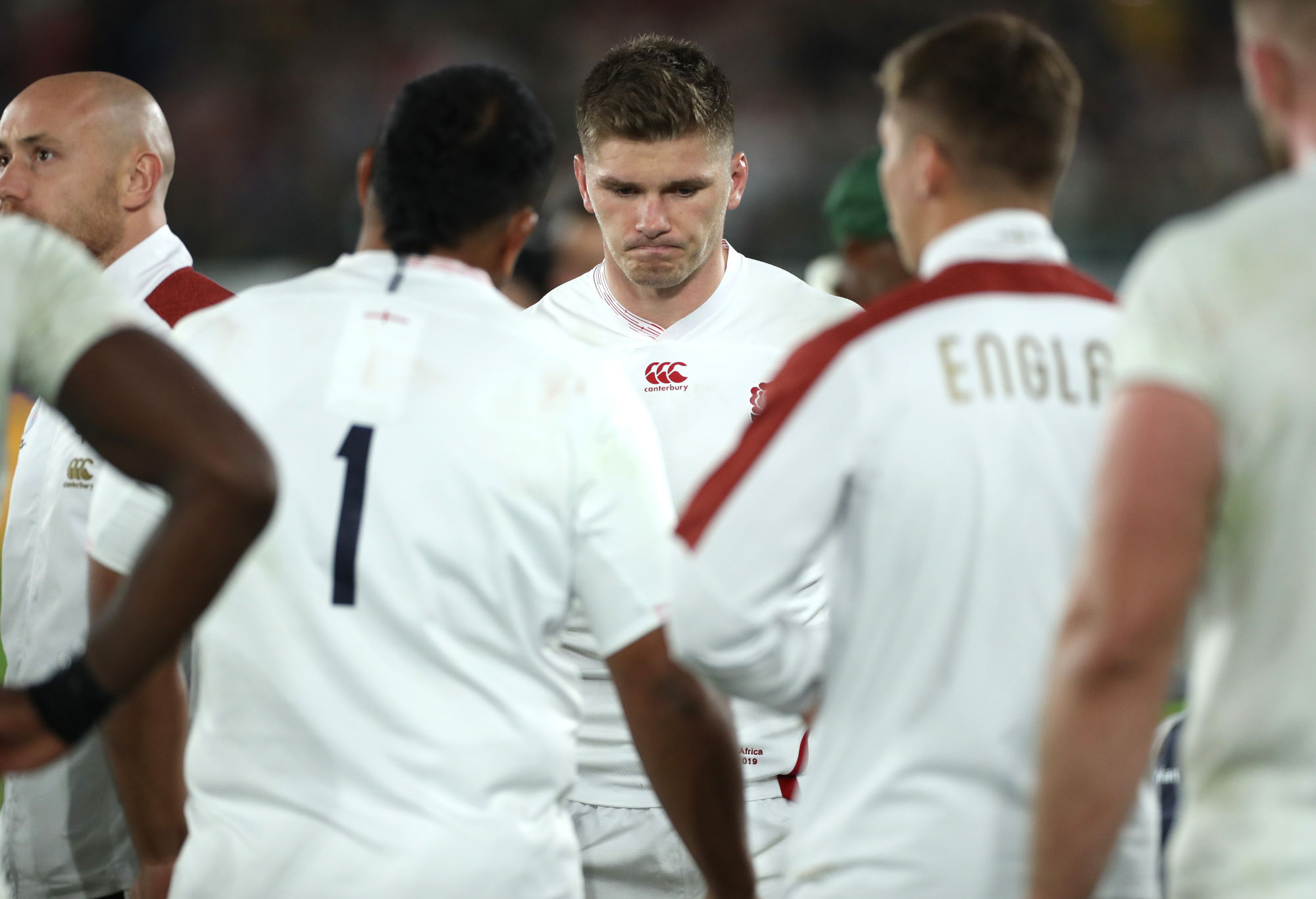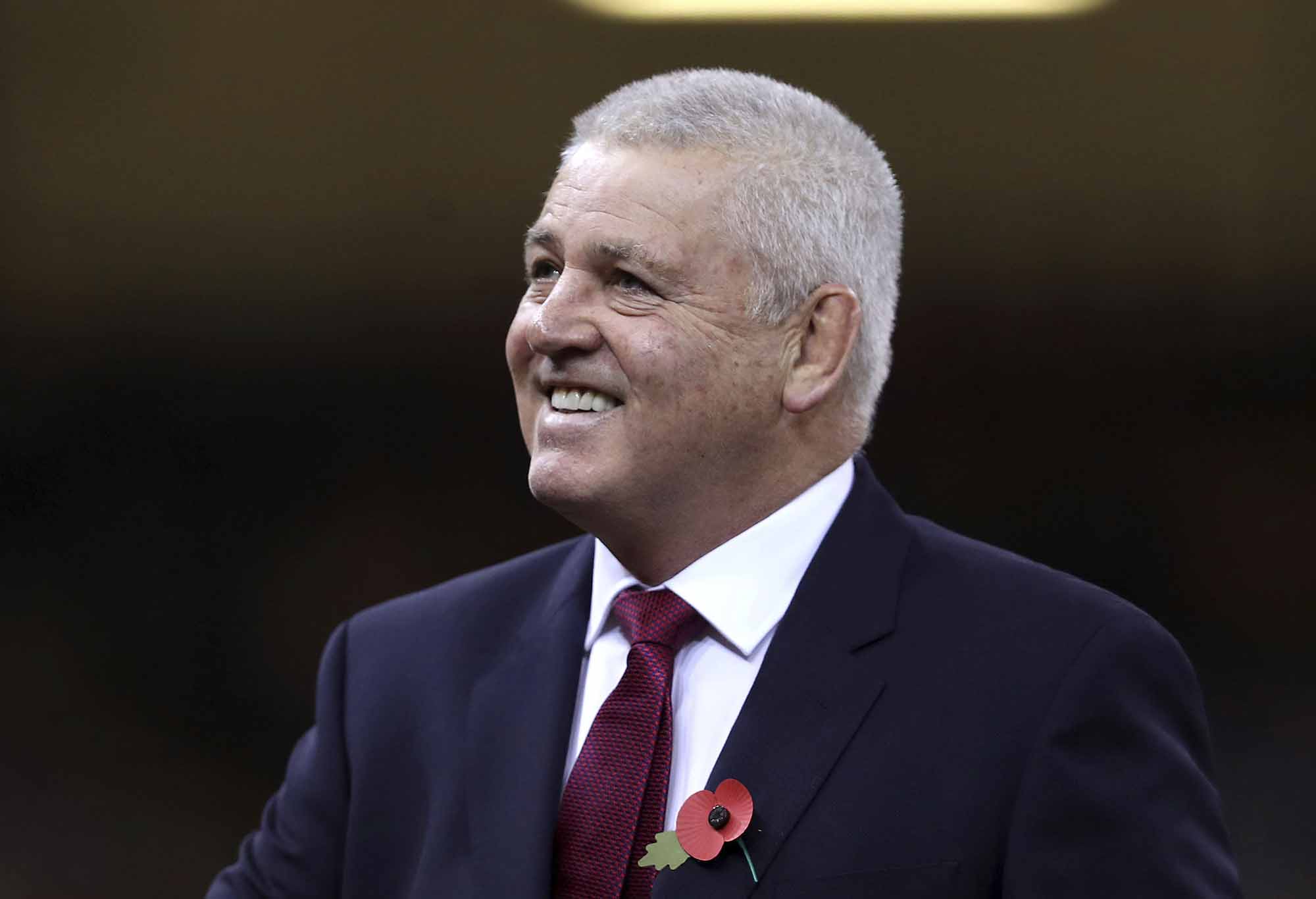Test match rugby jolts back into life this weekend with the start of the Six Nations.
Older, wiser Wales have recuperated history again and tests Ireland in Cardiff. A meandering, eddying England endeavour to regain the Calcutta Cup. (And France are in Italy, sampling local delicacies).
On paper, all three matches are foregone conclusions. Surely it will take more than one Test for Warren Gatland to harden his old team into the stubborn abstemious negators they once were? The Scots cannot hold the Cup much longer, no? Does Italy stand any realistic chance against the French melee?
But as this grand old tournament proceeds, more difficult questions await. Here are seven to ponder.
1. How will England’s insipid attack shape up?
For two consecutive Six Nations, English tries were uncommon and clumsy.
The issues were born of a clunky 10-12 axis and an unsettled midfield combination, insufficient “yards after contact” by big men, dependency on first phase lineout starter plays, a slow counterattack which squandered superb defensive disruption by the likes of Maro Itoje, and diminished confidence in space.
Together, this created a stew without a clear taste: it was a mush of mud moshed into a malaise.
Some of this can be fixed fairly quickly. A lineout full of rangy athletes and brute lifters can improve fast. However, England has a challenge at hooker.
Selection is another improvement avenue. But incoming coach Steve Borthwick does not have an entirely new cast of characters to call on, no matter how much “Ben Earl” is chanted in anthem form as the saviour of St. George’s army.
Elliot Daly is out. Henry Slade is out. Perhaps the answer will need to come from the back. The fullback.
Young Freddie Steward has 17 caps in which he has demonstrated one thing (a very important thing): he can handle the high ball. In recent Tests, he showed he can make YAC, too. He beats first tacklers. In the Australian series, he showed flashes of being a playmaker.

Owen Farrell (Photo by David Rogers/Getty Images)
At 22, he has plenty more to learn and show. The next tricks must likely be how to ignite the counter.
France and Wales, and to a lesser degree Scotland and Ireland, will give Steward touches of the ball in space. He’s not fast enough to cut a break like Stuart Hogg used to, and he’s not the footballer Liam Williams is, but he could emulate a player like Jordie Barrett, by getting his hands through contact, or Hugo Keenan linking to speed, and spotting space like Damian Willemse did against England in the match which brought regime change or using scraps (even from box kicks) like Willie le Roux or Beauden Barrett to create just a few more chances.
Just like the Barrett brothers, Steward can play on the wing and come in from the side to trigger attacks. But a wing never gets the chances to touch the ball that a fullback does.
Attack coach Nick Evans will have a good idea of what Steward can do and now that the muddle of the Marcus Smith and Owen Farrell steering wheel arm wrestle is presumably over and done (although the absence of Slade means the failed experiment continues), the big fullback should get five or six more touches in general play and turn more into a red zone conductor beyond first phase.
England’s shape on attack after a couple of phases, particularly in the opposition 22, has turned into burnt pudding of late. Deception has gone away, and second waves were slow; in its place, Eddie Jones employed a splintered battering ram of Ellis Genge and mates, none of whom looked in prime fitness.
2. Is instant improvement a thing in 2023?
Unlike Fabien Galthie, who owns the French machine (and with the demise of Bernard Laporte’s reputation, stands alone and supreme as the master of French rugby) and has interchangeable players, leaders, and plans, with only Gael Fickou as a 50-plus capped international, or Andy Farrell, head of the Irish super academy, Borthwick and Gatland are walking into fluid scenarios.
When Wales were winning, Gatland famously boasted his team had “forgotten how to lose.” Well, lately, they remembered. But he is walking back into a castle he built. Camelot has strong foundations.
He can field ten players with more than 50 caps. He can put a thousand caps on the pitch at one time.
Thus, if there is going to be an upswing, we would expect it to be from the team which lost at home to Italy and gave the Wallabies their hearts.
Gatland also gets the gift of hosting number one at home. Leinster dominate the Irish squad and their club season has been far too easy; no losses at all.
Even if Wales lose, but it is close, Gats will be a hero. If Ireland stumble, the entire tourney changes, on opening weekend.

Wales rugby coach Warren Gatland. (David Davies/PA via AP)
So, it is Borthwick who faces the larger challenge. Kevin Sinfield will need to bed down a new defence.
But it is that man Evans who has to bring the speed of attack up to top three standards. France may not launch as many attacks as Ireland (who embrace an old All Black mindset of throwing as many darts as possible), but they use a Springbok mentality in switching on and finishing that is working well.
England cannot beat either Ireland or France with their 2022 glacial offensive pattern. Ruck clearance speed, accuracy of pass, and smoothness of transition will be the keys for Borthwick’s team to finish higher than Scotland and Wales (which is surely the passing mark).
But what of the top two teams? Might they also improve?
3. Will the mighty start to fall?
France and Ireland are trying to lap the field and finish 2023 as king. Obviously, at least one of them is going to fail.
But what if both do?
Ireland and France were not convincing in their dual Wallaby-Bok Tests last year. Yes, they won. But there were seeds of the roots of the trees which break through foundations: on full display.
If rugby is the game played in heaven, all the angels were Irish last year.
The short pass on time, eyes wide open, speed into contact, one vision clear, handsy tight forwards, joyous loosies, renaissance props, nuggety backs who look like they could play any sport, energy abundant, and above all: enjoyment in the game we all learnt to love long ago.
But angels’ wings break.
Still, I see them falling to earth in the Rugby World Cup quarterfinals (Johnny Sexton simply cannot make it all the way, no?), not yet, not in the Six Nations.
It’s Ireland, France, Wales, England, Scotland and Italy for me, in order; and a clean sweep for Farrell’s men.
Why? Ireland has France and England in Dublin. They will catch Wales only halfway resurrected. And the other two teams are going to endure a miserable tournament if I am seeing it right.
It is France I expect to slip a bit.

France’s Antoine Dupont (centre) lifts the trophy with team-mates after winning the Six Nations last year (Photo by Adam Davy/PA Images via Getty Images)
They looked more discovered in their narrow wins over Australia and South Africa; partly because their plan is so telegraphed and partly because if a team is big and fast enough, too much of the French plan is neutered.
Fickou gets more press than Jonathan Danty, who is out, but that theory will be tested and the punch from inside centre is key to their red zone success.
Yes, Damian Penaud and Antoine Dupont can tear apart any defence if given a chance, and their loose forwards are just as good as Ireland’s, but I see them losing to Ireland and dropping another game, too.
4. Can Italy take another step?
No. Not yet.
For three simple reasons. Their best player is not Ange Capuozzo. It is flyhalf Paolo Garbisi. And Garbisi may be out for most of the tournament.
Italy will get hammered this time, by everyone except Scotland on the final weekend, as they battle over the wooden spoon.
5. Which road will Scotland take?
The low one.
Gregor Townsend wasted Scotland’s best chance in decades last year by indulging in a useless show of “who’s the boss” with his best player, Finn Russell. Stocked with generational talent, Scotland failed to hit their window (2021-22) and will now enter the denouement of this era.
They are not emerging from their World Cup pool, so this competition is the season. It means everything.
But they are not better than last year. They are worse in the set piece and a year older in the skill spots.
One would think England is going to treat the Calcutta Cup as their cup final, and if Scotland loses that, they face what will likely be a better Welsh side.
The bookmakers all have Scotland fifth this year, around 25/1 for the title.
Townsend has never done better than third in the Six Nations as a coach (he was victor in 1999 as a player); with an exactly 50 percent record.
His problem is there is very little new for 2023 and all that is good is getting auld.
6. Who will be the Ten of the Tournament?
Garbisi would have been an outstanding complement to the list of superb flyhalves contesting this tournament and will hopefully return sooner than projected.
Russell, Johnny Sexton, Owen Farrell and Dan Biggar are legends already in their respective unions. Health permitting, Romain Ntamack will get to 40 caps this year and has looked like a legend in the making. Smith may or may not be in the conversation, but what a debate this shapes to be!
Biggar, Sexton, and Farrell lead their teams and are all the most ferocious of competitors.
Biggar is in good form and seems to have smoothed his edges. Warrenball (even if 2.0) will suit him.
Given Borthwick targeted efficient Handre Pollard for Leicester, it seems likely he will ride big Farrell as his 10 at some point. That will be best for English wins: Farrell is clearly not a world class centre at the level of Robbie Henshaw, Damian de Allende, Danty or Samu Kerevi, but at flyhalf he is comfortably in the conversation and if the Smith-Farrell experiment continues, the laboratory will burn down.
Old man Sexton has been dormant this season. Leinster has rested him. He only started once in the November Tests. Father Time is brutal on off season training and creaky returns. But oh, how he will want this year to start. Plenty of money has been lost betting against Sexton.
Russell may be playing off the back foot, but that is sometimes when he is at his best. Still, his team is going nowhere now.
Ntamack does not drive France as much his counterparts, but this is also his year to step up.
All in all, it look as if Sexton is the front runner but look for Biggar to run him close.
7. Will the cards keep coming?
Sometimes World Rugby, that amorphous body we struggle to find, like the soul, sends messages just before the World Cup.
A spike or a reprieve, an indirect feint, or a veiled invitation: all are possible.
We were awash in cards the last two seasons. Type any word in a rugby article starting with ‘t’ and you’ll be auto-corrected “tackle height.”
Some of the best coaches are embarrassing themselves with diatribes.
The game probably needs to reach some sort of equilibrium as the “global shop window” is set up.
Two seasons ago, Wales rode cards to wins. Last year, cards swung crucial contests. What of this year?































































































